February 2025 - Driving, Devils and Dawnfolk
February was nuts y'all. Not only was there a metric tonne of excellent indie games, there was also Civ 7, Avowed and Kingdom Come 2. I like to highlight any indies that may have flown under the radar, with a special shoutout to "of the Devil" and Studio System: Guardian Angel.
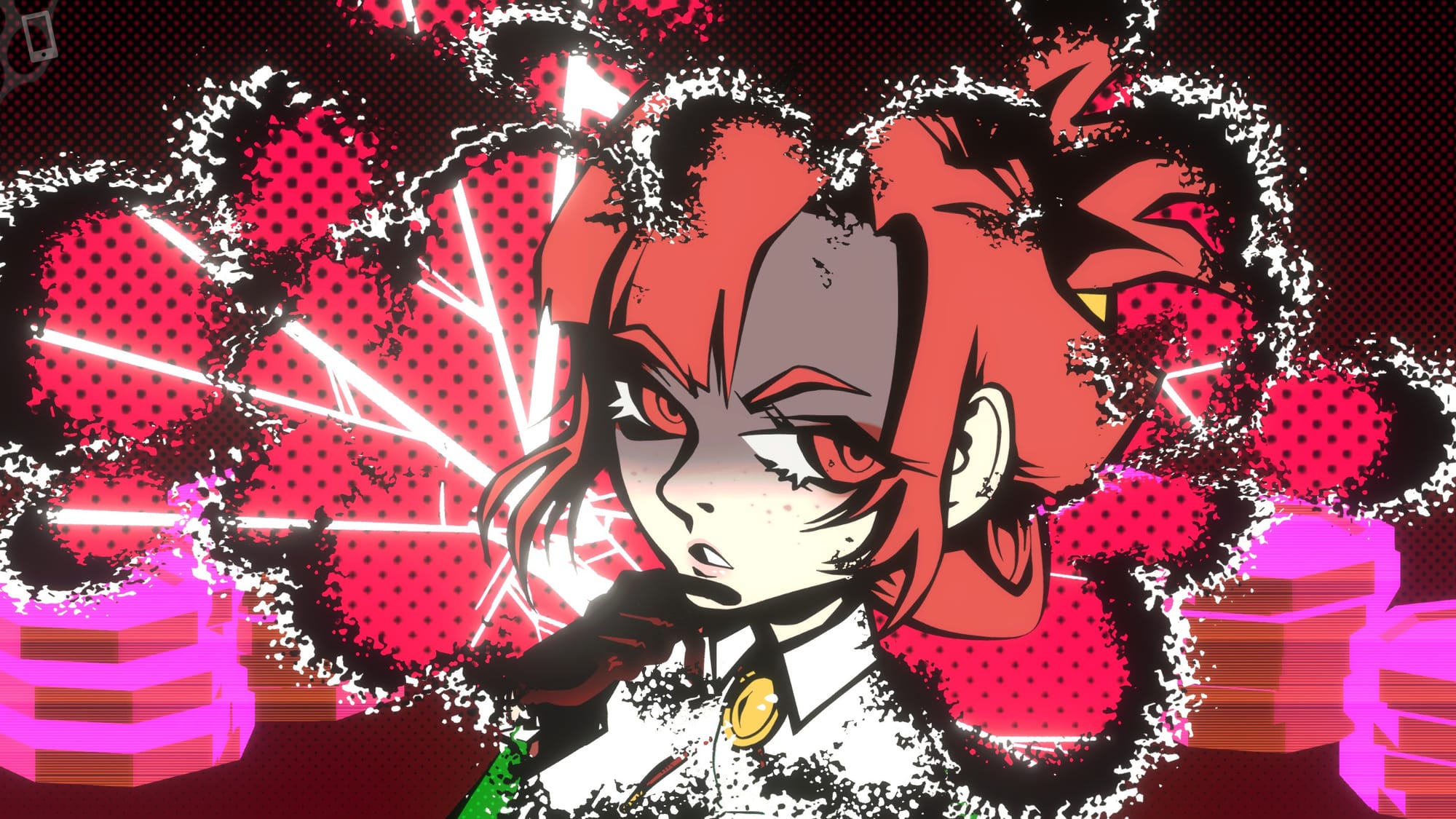
February was a lot. While I always strive to cover more underrated games, there were a couple of big releases I couldn't ignore. Civilization VII was released to a mixed response; I like it, but I do see where the complaints are coming from. Avowed finally came out and is a return to form for story-driven action RPGs. Still, it's had trouble escaping comparisons to games like Skyrim or Baldur's Gate 3. Kingdom Come: Deliverance 2 dropped, taking the world by storm with its deep sandbox gameplay. While these AAA blockbusters certainly shook up the hive, today's focus is on the indie games that might have flown under the radar. After all, that's what it's all about here at Just Good Games.
Keep Driving
I kind of hate driving, but I've never taken the time to really drive just for the sake of it. I've always got a place to be, some weight bearing down–and it feels like the responsibility of everyone you share the road with to ensure you get to your desination as slowly as possible.
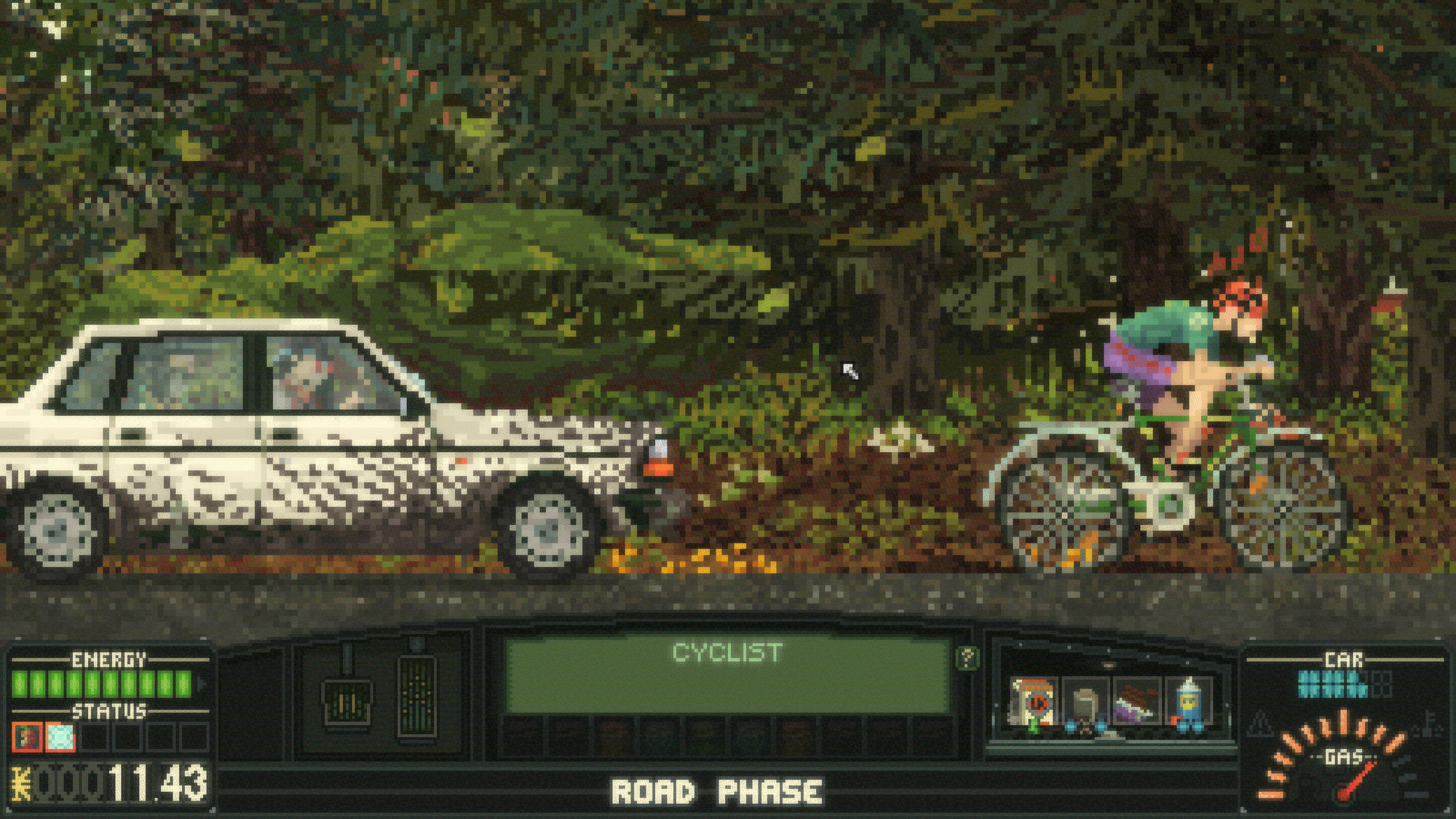
Keep Driving is the antithesis to this. Well, all aside from the inclusion of cyclists and tailgaters, presented as enemies in turn-based encounters (a little too close to reality). You've got vague objectives, but there's hardly any urgency or higher meaning. You're just mosying from one place to the next, listening to profoundly European music, smoking tonnes of cigarettes and giving lifts to strangers on the road. It's a vibe-driven experience, and that's okay. The charming pixel graphics and modern 2D lighting not only look amazing but enhance the overall atmosphere too.
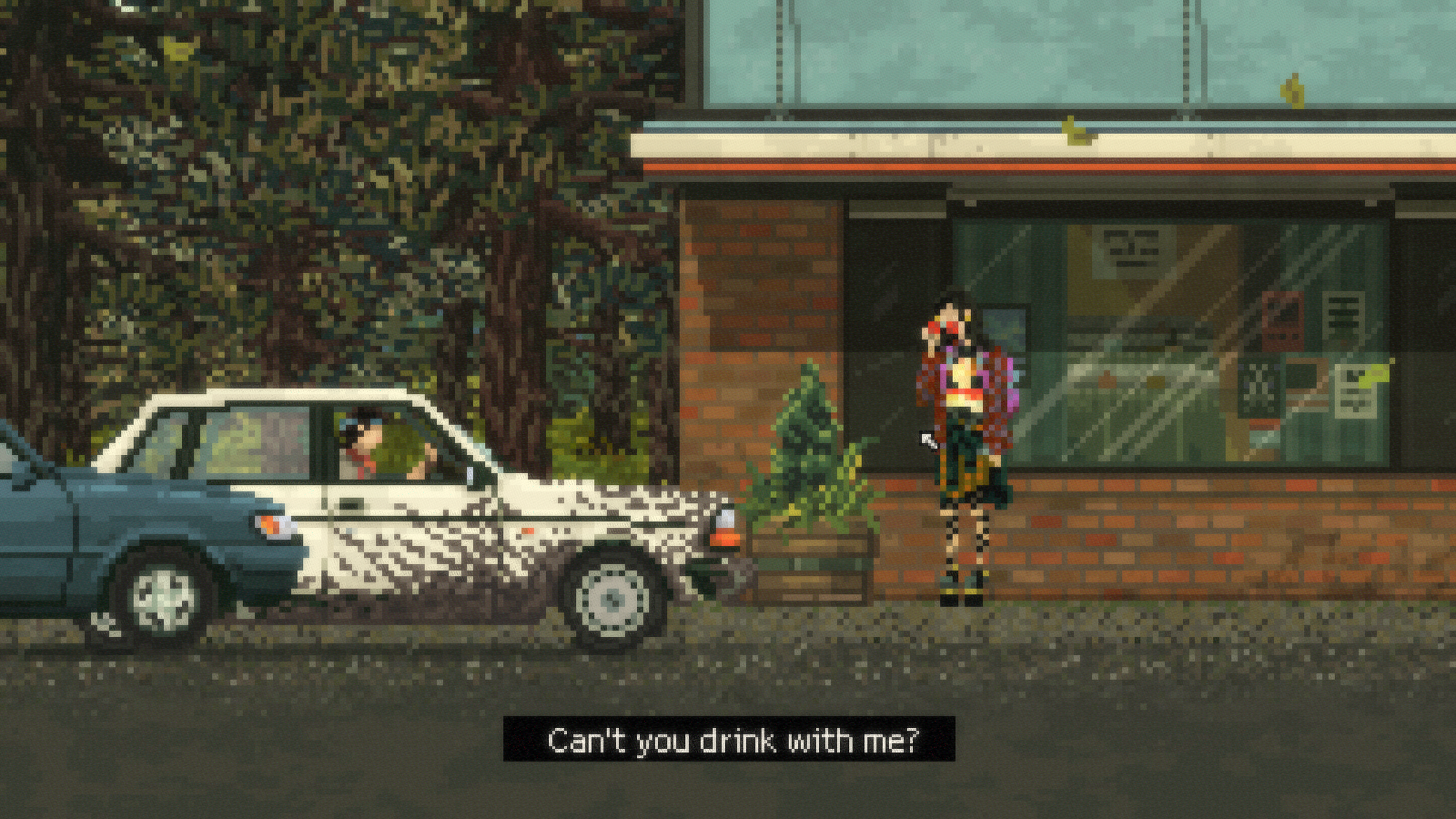
It's not all vibes though, there are a number of mechanical layers that creep up on you. Encounters aren't easy; you need to conserve ability uses, plan ahead with supplies and sometimes lose anyway. It is still technically a management RPG, after all. The vibes mask a venerable depth of strategy, but it's a welcome contrast. Keep Driving always felt fun, and the problems presented to me never felt too punishing. After all, it's not the end of the world, just a bummer end to a road trip.
Studio System: Guardian Angel
Failgirl /feɪl-ɡəːl/
noun
A girl who cannot perform the simplest of tasks without resulting in abject failure.
There isn't a more suitable description for the characters in Studio System: Guardian Angel. Their core identity is apathy. There comes a certain emotional whiplash, going from a game like Keep Driving–which championed letting go of your worries–to a game that indelibly punctuates the crushing weight of the world. Ostensibly a fixed-camera survival horror game, with the unique gimmick of your camera itself being the weapon. It's refreshingly straightforward and accurate, just point-and-shoot, reminiscent of arcade/rail shooters.
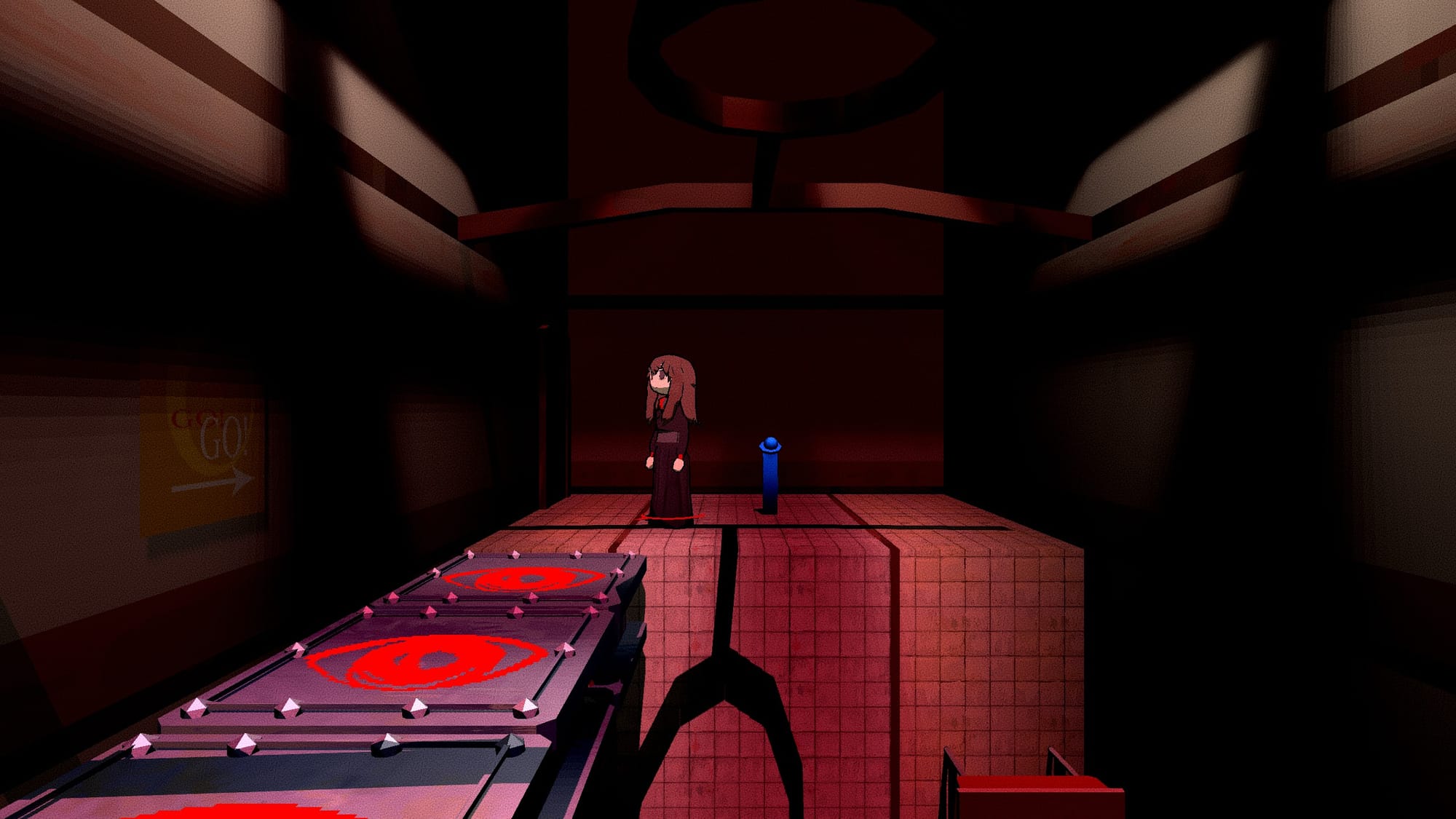
You play as Rebecca "Becky" Townshend, a high school graduate-in-progress with no job, no plans and no food in the fridge (at least, nothing in date). Your only friends in the world invite you to your school to investigate a secret basement, after which, all of reality is upended. I won't spoil too much, it is a pretty short game after all, but throughout its limited runtime it remained tense and unsettling. It does get a bit less stressful when the game gives you a baseball bat, but the same can be said for real life too.

The audio/visual side of things is a mixed bag. Music is often really droning and while it does make the atmosphere creepy it can get old fast. The 2D art is excellent: stylistic and full of character. The 3D art is effective but limited in what it can really evoke. I'm obliged to recommend (almost) any survival horror game that comes my way, and I think this will resonate especially well with fans of games like Signalis or even ObsCure if you're after a game specifically about cosmic horrors stalking the halls of a high school. It's a captivating little game–with a few modest twists on the genre–that's well worth the brief time investment.
of the Devil
There's a shortage of courtroom/mystery games in the world. You've got your Ace Attorneys and your Danganronpas, but they are stuck in their dazzling but small worlds. "of the Devil" (the lack of capitalisation is intentional) throws on a whole new coat of paint, and introduces a gorgeous cyberpunk dystopia overflowing with engrossing, yet grounded, themes, characters and mysteries.
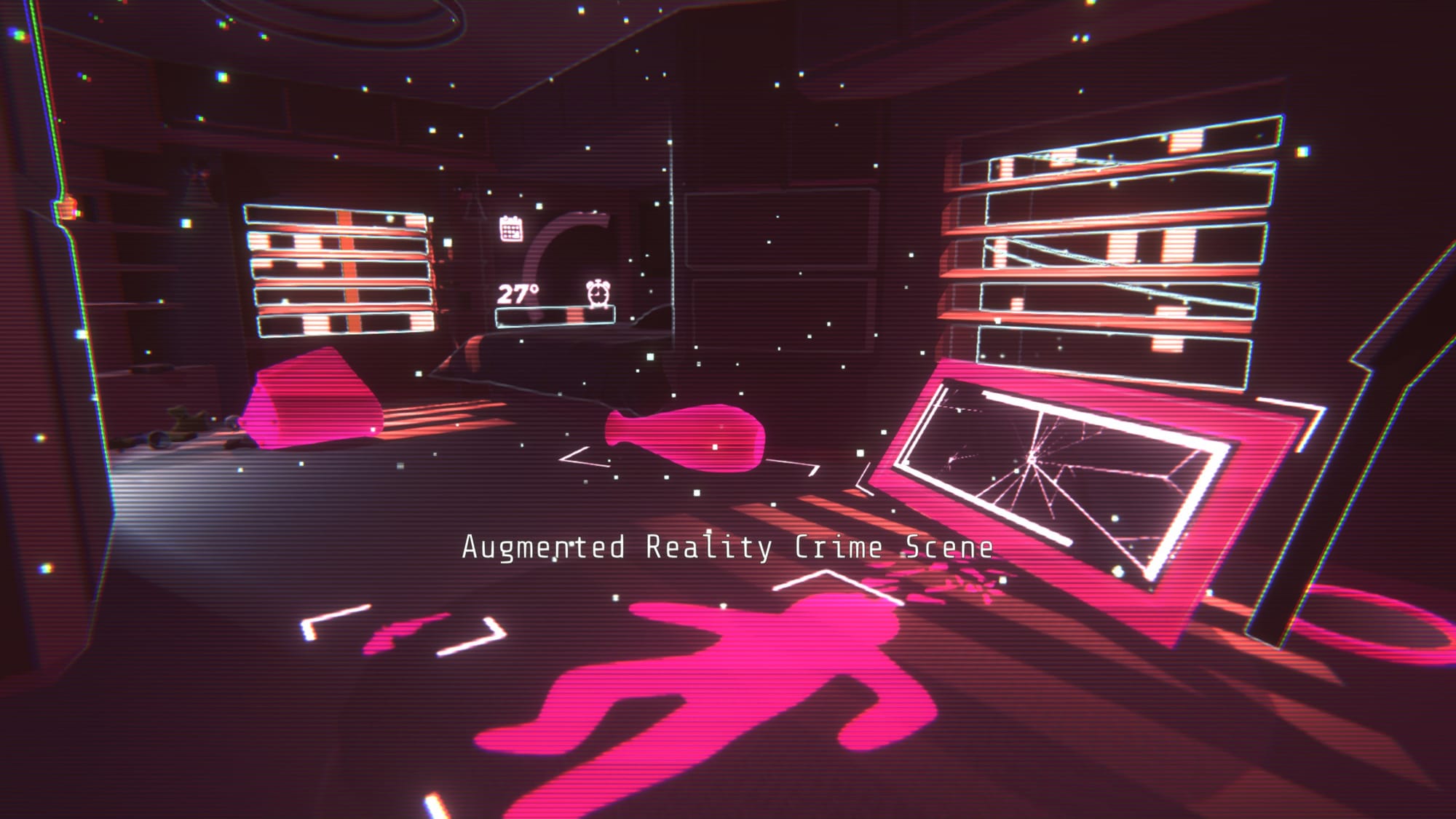
It's hard to write about heavily story-driven games since spoiling anything is the last thing I want to do. So, to keep things vague, everything about this game's storytelling is excellent. Dialogue is snappy, and witty when it wants to be, but never pulls a punch when the chips are down. The presentation is top-notch, with vivid colours, beautiful art, a slick interface and a fascinating take on traditional courtroom/debate scenes. These are set up like a game of poker; where you use evidence to make your hand, raise or stand when another character makes a counter-argument, and bet it all on a risky play for the pot.
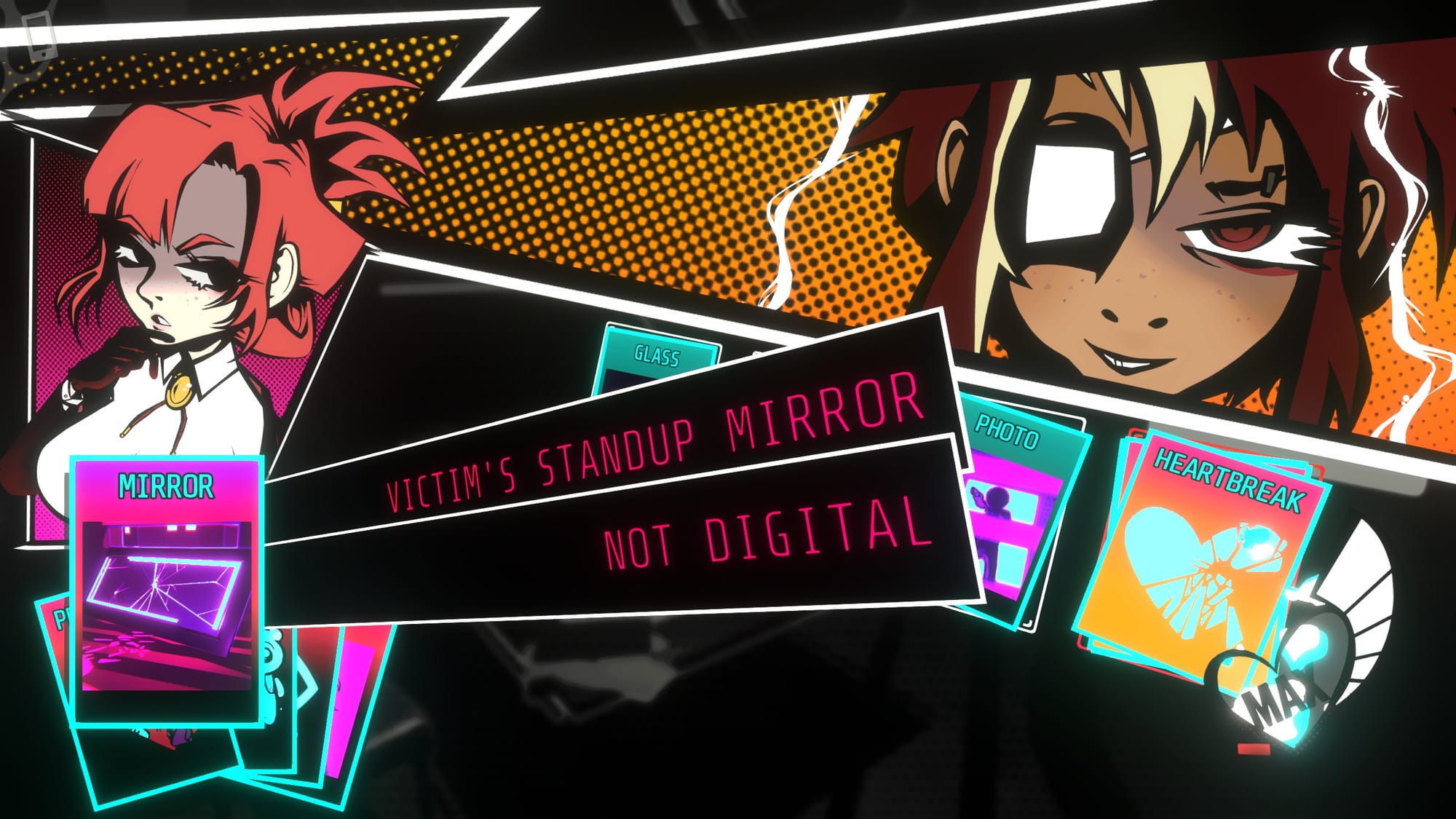
You also spend considerable time gathering evidence by interviewing people, exploring areas and VR crime scenes, and making your own deductions. One really nice touch I found was that you can't just read a datapad–once you're finished, a prompt and question about what you just read is raised. To gain a footnote you can use as evidence, you need to answer correctly. There are so many good ideas here, and it's a genuinely stunning game. Fans of the genre should absolutely pick it up, no questions asked, but even beyond that, I'd recommend this to just about anyone. It's easy to fall into, and you won't want to get out. The prologue is free too, what are you waiting for!?
Guns of Fury
I would have gleefully welcomed any game following in the footsteps of the classic Metal Slug series, Guns of Fury takes it even further. There are still the insane action set-pieces you would expect, but spliced with the DNA of a Metroidvania–a Slugvania if you will–and these elements combined create a unique dichotomy.
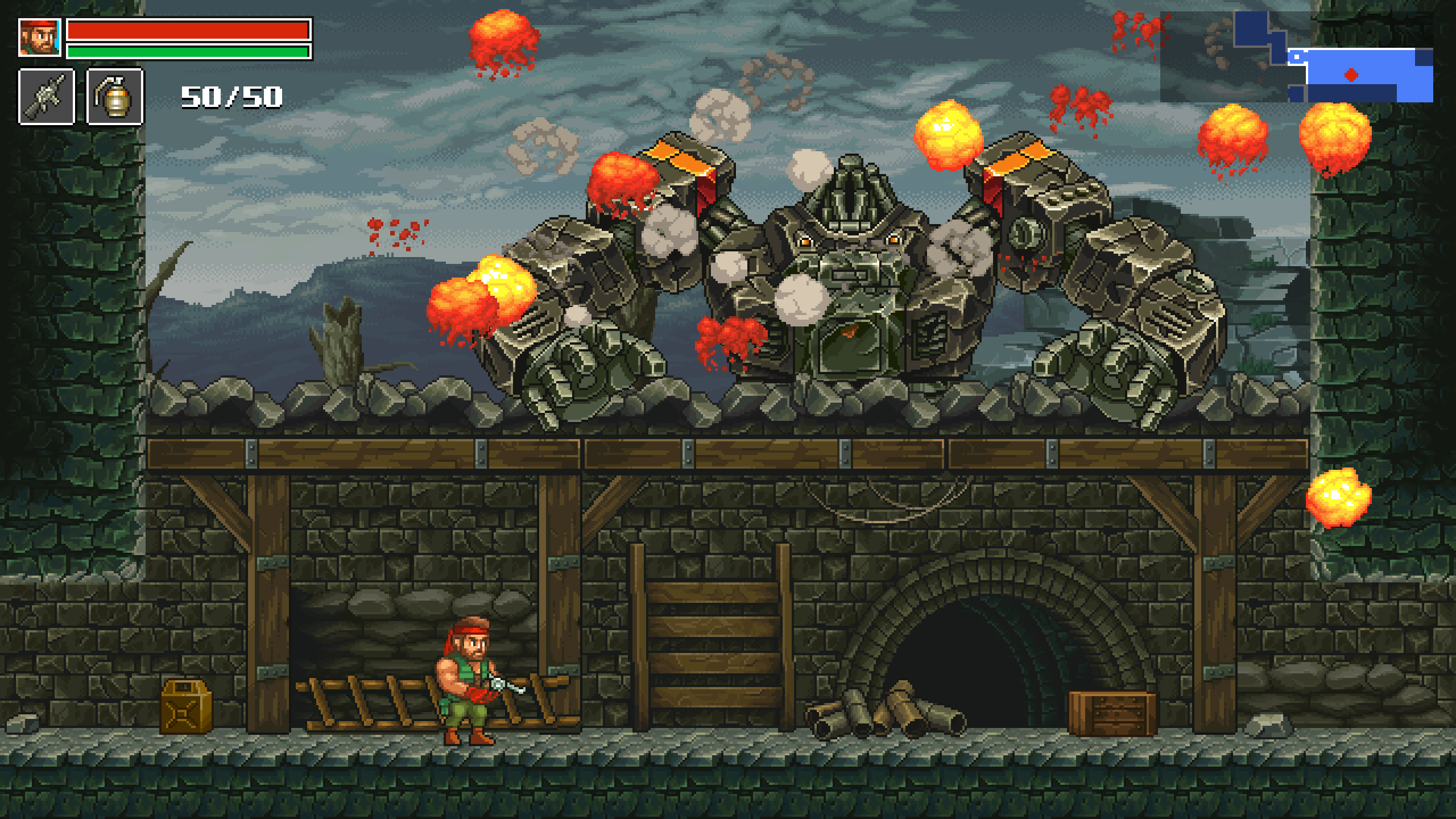
If you're at all familiar with the Metal Slug series you'll feel an immediate familiarity. The art style, combat and music are all clearly taking inspiration from the series. It doesn't feel as slick as the Metal Slug games, but it accomplishes the core elements that made those games great. What's a bit less great is the implementation of this game's Metroidvania elements. While having a big, open world to run-and-gun in is a childhood dream, there's an awful lot of backtracking here even compared to other games in the genre. Not only that, it can be difficult to know where to go in the first place. It can feel like you're just wandering around aimlessly until you somehow find a power-up or item you need to progress.
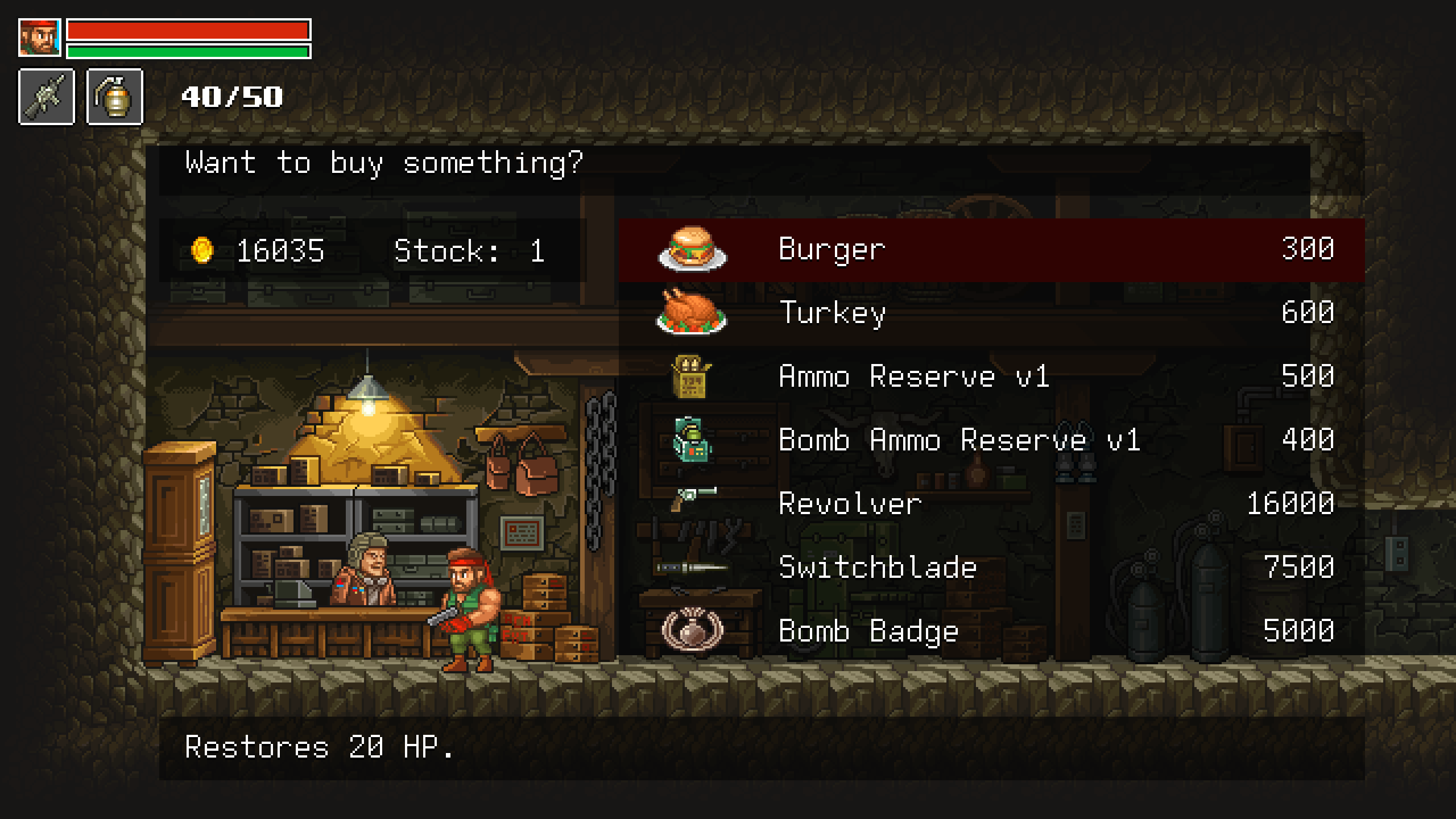
It's still buckets of fun, but I can't help but feel like the target audience for this game is extremely narrow. Fans of side-scrolling shooters like Metal Slug will love it initially but might find themselves bogged down by the backtracking. Fans of Metroidvanias might be put off by the breakneck action and lack of lore/plot. For those in the middle, however, this game will land with the confidence of a mechsuit wildly swinging around a laser sword.
Dawnfolk
While Dawnfolk bills itself as a "minimalist survival city builder," it feels far more like a puzzle game. That's not a bad thing, in fact, it's great. While you are technically building a city, it's a far cry from games like Against the Storm which I would consider to be much closer to the genre of survival city builder.
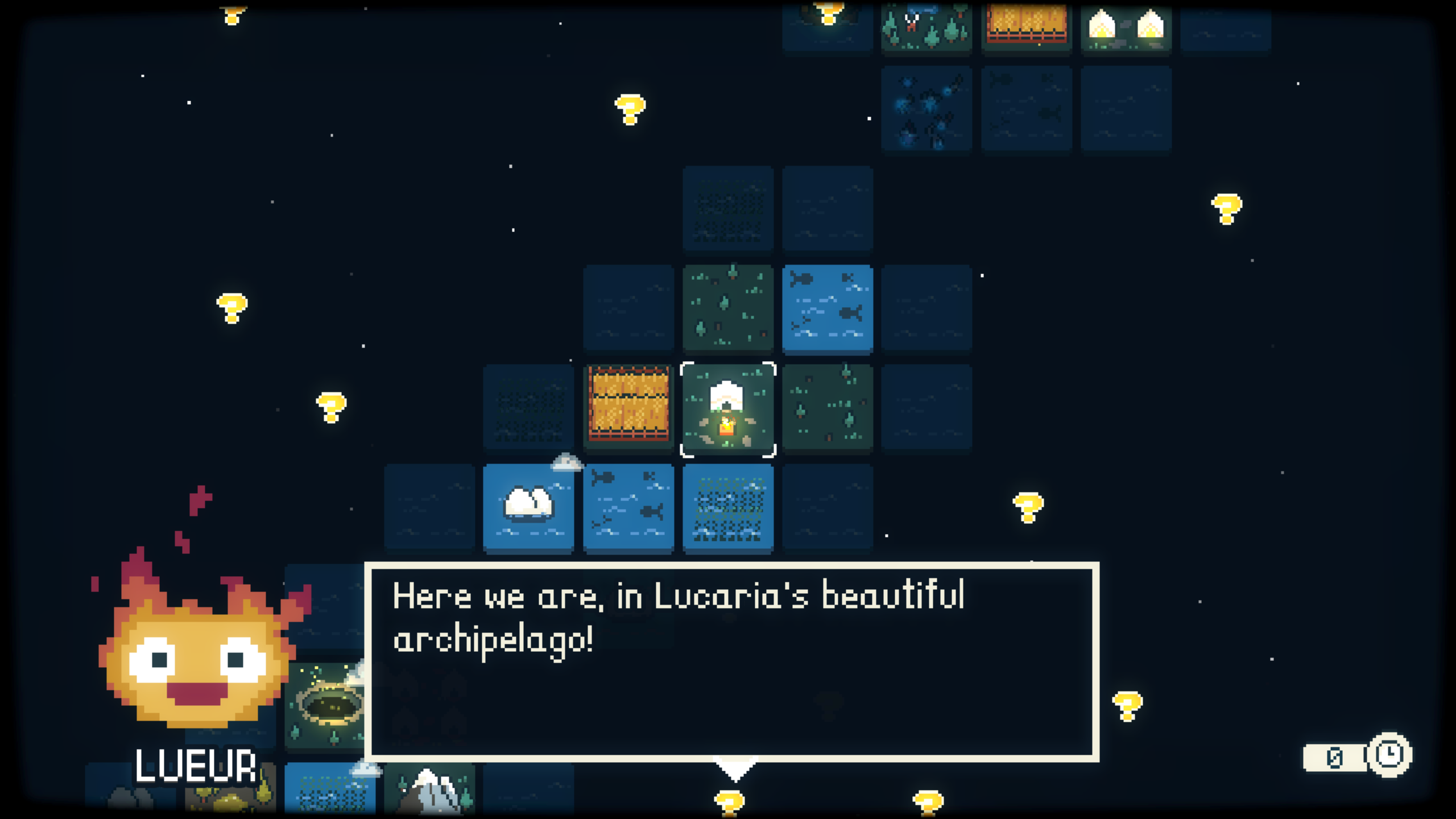
You never really get the degree of control and creativity that a city builder can offer. Instead, it feels like a simplified take on the genre. Every level introduces new mechanics or obstacles that need to be overcome, it's a drip-feed of intricate mechanics that all start to come together towards the latter levels of the main story mode. It's paced exactly like a puzzle game, rather than a city builder or strategy game. Which itself is clever because your reward for solving a puzzle is a map that you've cultivated and built your own unique little city on. It's kind of like standing back and looking at a crossword you just finished filling in, it's immensely satisfying.
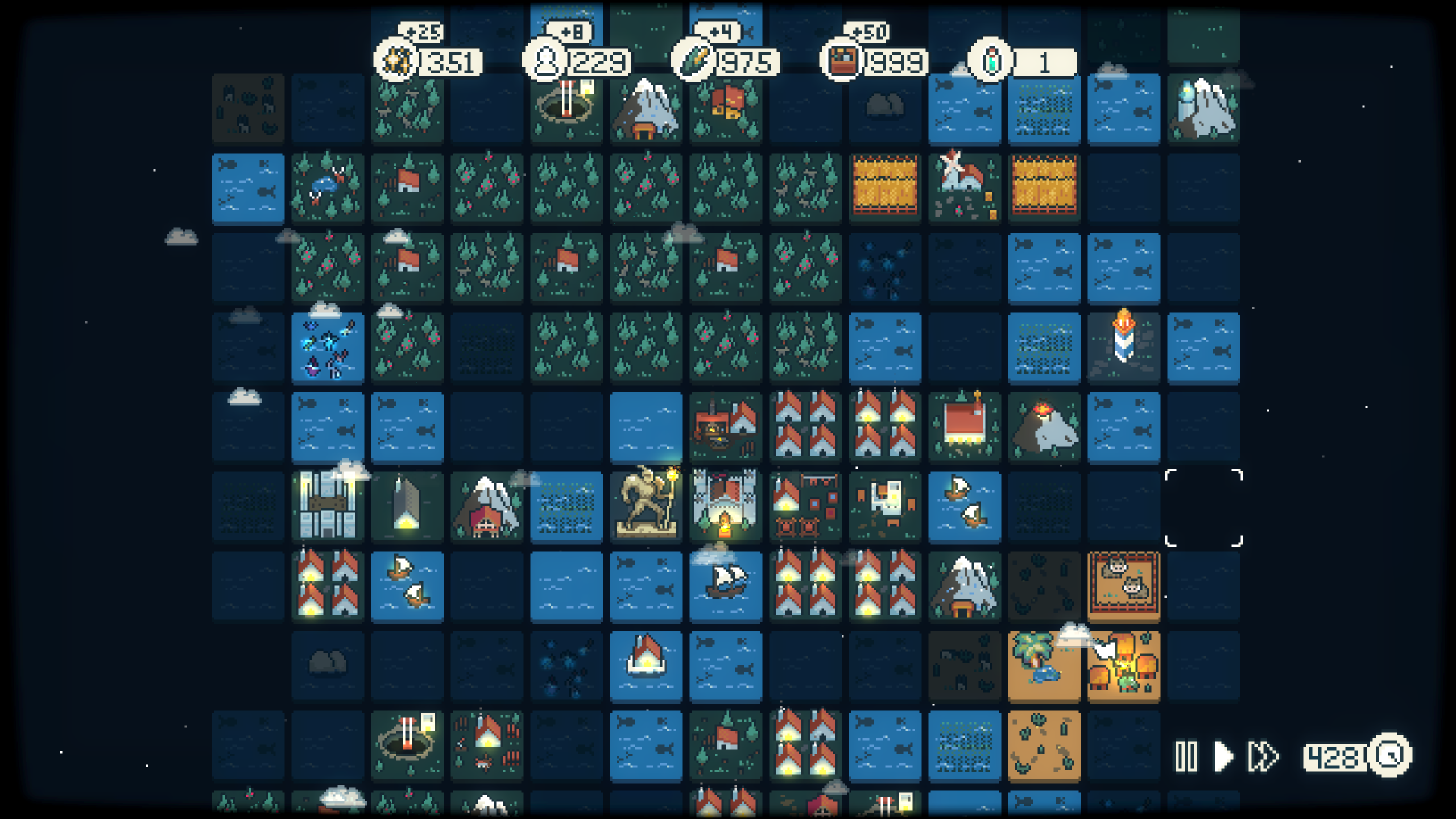
Dawnfolk is a well-presented game, the art and music are charming, and it's optimised for handhelds like the Steam Deck which is the perfect way to enjoy a game like this. I found it to be a lot of fun, but I think you need to know that you're not getting an intricate city builder/strategy game out of this. It's much more casual than most other games in that sub-genre, which is excellent if you're after a pared-back experience for a quick session. There's a "one-more-turn" quality to it as well, and a quick session can turn into a long one if you're not careful. The developer, Darenn Keller, also deserves a shoutout for being so responsive to community requests like mouse support and turn-based gameplay, both of which have been added in with post-launch updates.
That shuts the book on February, it was a truly huge month. There's no sign of slowing down though. The Steam Next Fest is also currently on and I find myself writing yet another article about the plethora of demos I found myself installing. There's a lot left to come in March, whether it's brewing tea in Wanderstop or Fallouting Fallouts in Atomfall: by far the game I'm most excited for is Split Fiction. I probably won't cover it here as it isn't exactly indie, but you know where I'll be on March 6th.
